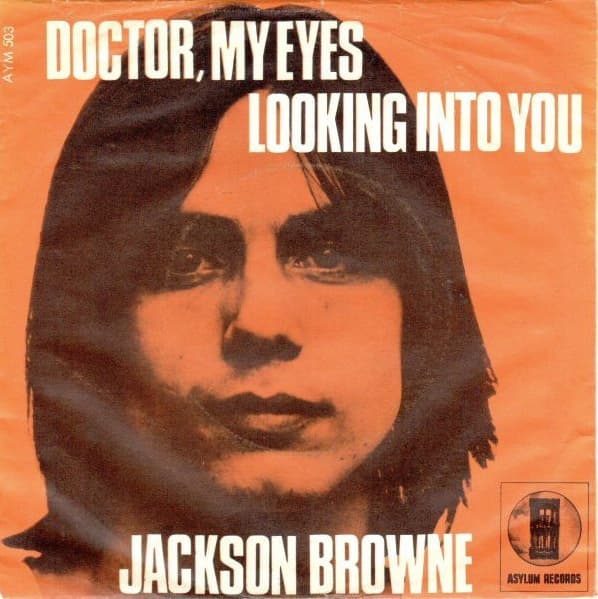
Unveiling the Depths of Despair and Insight in “Doctor, My Eyes” by Jackson Browne
In the expansive realm of 1970s rock music, Jackson Browne emerged as a compelling voice with his debut single, “Doctor, My Eyes.” This song, released in 1972 and featured on his eponymous debut album, represents a profound exploration of weariness and the human condition through its poignant lyrics and vibrant musical composition. Upon its release, the track not only marked a significant moment in Browne’s career but also left a lasting imprint on the charts, peaking at number 7 on the Billboard Hot 100 and number 4 in Canada.
“Doctor, My Eyes” stands out for its intricate blend of upbeat piano riffs and introspective lyrics that convey a sense of deep existential fatigue. The song’s narrator seeks help, lamenting his inability to feel after years of witnessing life’s hardships. This paradoxical mix of lively music and somber lyrics crafts a unique auditory experience that resonates with listeners, encapsulating the classic Browne theme of personal struggle and emotional resilience.
The instrumental arrangement in “Doctor, My Eyes” further enriches its narrative. Jesse Ed Davis delivers a compelling electric guitar solo that complements the song’s vibrant piano base, laid down by Browne himself. The additional layers of harmony by David Crosby and Graham Nash add a rich texture, enhancing the emotional depth of the track. Meanwhile, the rhythm section, powered by Russ Kunkel on drums and Leland Sklar on bass, anchors the song’s dynamic structure, driving it forward with energy and precision.
This song did not just enjoy commercial success; it became a staple in Browne’s live performances, often serving as a poignant reminder of his lyrical genius and musical versatility. Critics and fans alike have noted the song’s ability to evoke a strong emotional response, facilitated by its lyrical sharpness and musical complexity. Music historians and fellow musicians have discussed Browne’s meticulous songwriting process, as depicted in various documentaries like the “History of the Eagles,” where Browne’s iterative creative process is highlighted.
Critical reception of “Doctor, My Eyes” at the time of its release was generally favorable, with reviewers commending Browne for his thoughtful songwriting and the track’s ability to appeal to a wide audience. The song’s narrative and melodic strengths have led it to be ranked highly in retrospectives of Browne’s career, reflecting its enduring appeal and significant place in the rock music canon.
As a debut single, “Doctor, My Eyes” was more than just a chart success; it was a bold declaration of Jackson Browne’s arrival on the music scene—a talented songwriter with a keen eye for detail and a profound ability to translate complex emotions into song. This track remains an essential listen for those who appreciate the art of music intertwined with the depth of human experience.